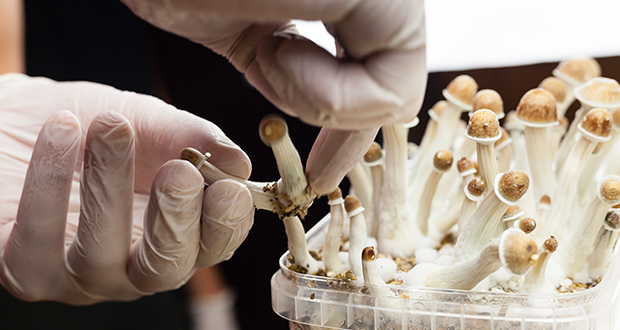While it may come as a surprise for many people, hallucinogens have been tested in clinical trials since the 20th century as an alternative to other psychotropic medicines commonly used to treat mental illness.
However, the stigma associated with individuals using hallucinogens for non-medical or recreational reason created a great deal of fear and scepticism in medical and regulatory circles, spurred on in part by the conservatism of the Nixon years.
However, all that might be about to change in Australia.
Mind Medicine Australia is seeking a rescheduling of psilocybin (the active ingredient in magic mushrooms) and MDMA (or ecstasy) by Australia’s Therapeutic Good Administration (TGA) so they can be potentially used in the treatment of mental illness in the future.
The group has submitted “Australia’s first applications” to the TGA and, if approved, would move these medicines from Schedule 9 of the Uniform Scheduling of Medicines and Poisons (which deals with Prohibited Substances) to Schedule 8 (which deals with Controlled Medicines).
Mind Medicine Australia is at pains to emphasise that the rescheduling would not impact “existing legal controls on illicit use or supply”. At the heart of the move is to give psychiatrists and addiction specialists easier access to other medicines to help alleviate the suffering associated with depression, PTSD and for the depression and anxiety commonly associated with a diagnosis of a terminal illness.
In the future, the group also hopes these medicines can be prescribed to treat substance abuse, obsessive compulsive disorder (OCD), anorexia and early-stage dementia. TGA approval would also help in reducing a “significant part of the regulatory burden associated with undertaking trials with these medicines in Australia”.
Mind Medicine Australia contends there are three critical reasons for rescheduling these two medicines:
- “Trials to date have shown that these medicines, when used as part of therapy with proper treatment protocols in a medically controlled environment, can provide high remission rates for key classes of mental illness when compared to current treatments (such as antidepressants and conventional therapy), require only 2-3 dosed sessions with the medicines (in contrast to permanent or long-term use of pharmaceutical substances such as antidepressants) and have minimal side effects (again in contrast to pharmaceuticals such as antidepressants).
- “To educate all key stakeholders in our medical system (e.g. medical practitioners, other health workers, politicians, regulators, people suffering from mental illness and other members of the general public) that these substances can be used positively and safely in a medically controlled environment to broaden the treatment paradigm for mental illnesses in Australia and substantially reduce the incidence of mental illness in our community.
- “To help the general community understand that the prohibition of psychedelics was politically motivated by a disgraced President of the United States (President Nixon), was not based on any scientific or medical rationale, and that the failure of our system to recognise that these substances can be used effectively as medicines in a medically controlled environment is detrimental to the health and welfare of a huge number of Australians.”
Psychiatrist Dr Al Griskaitis, who specialises in treating patients with depression, anxiety disorders and occupational PTSD, has blamed “bureaucratic inertia” for why the treatments are not already available.
Griskaitis told Probono News that he sought approval from the TGA to treat a patient with PTSD after exhausting “every treatment under the sun”.
“And they approved the use of it, which as far as I know is an unprecedented move. So that was very exciting. I was overjoyed. My patient was optimistic,” he said.
But as MDMA is a Schedule 9 (prohibited use) item, NSW denied the psychiatrist’s request, saying it could only be used in a research context.
“The TGA has said yes you can use it for your patient, but New South Wales Health has no provision for that. The law is tying their hands,” he said.
“So, even with approval, I’m not in a position where I can legally prescribe it for my patient, until there is a change which is going to require a thousand committees.”
A final decision by the TGA is expected in April next year.
Do you have an idea for a story?Email [email protected]
 Campus Review The latest in higher education news
Campus Review The latest in higher education news


Can you please cite the scientific trials and studies that are referenced in this article? Thank you.
I keep on hearing the news broadcast discuss getting free online grant programs so I’ve been searching around for that top website to get one. Would you advise me personally please, where might i find a few?